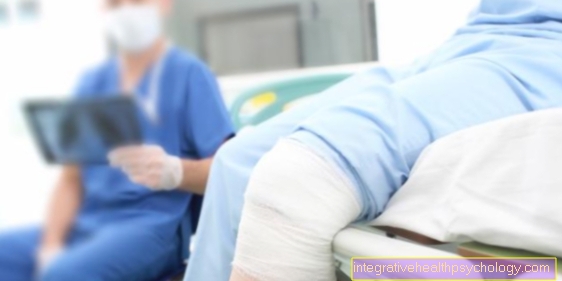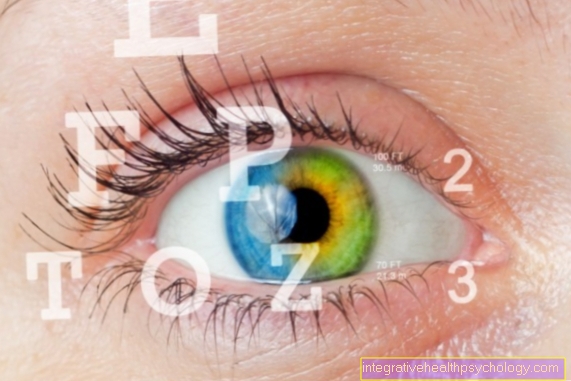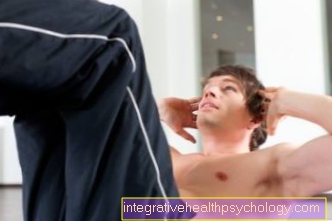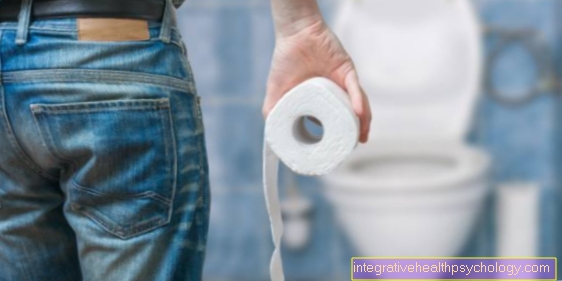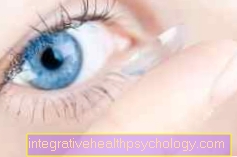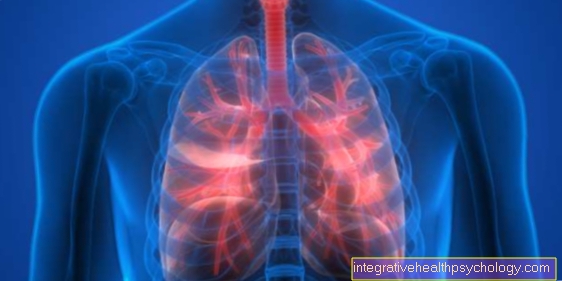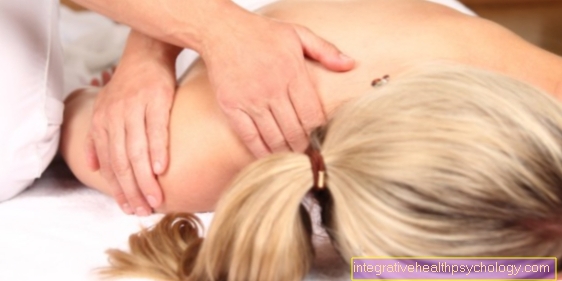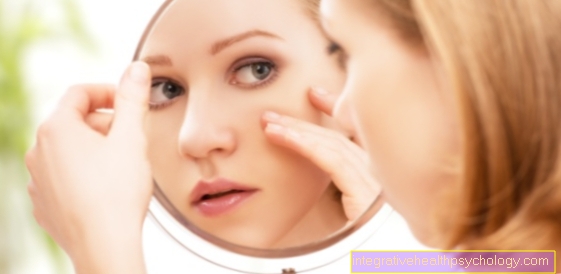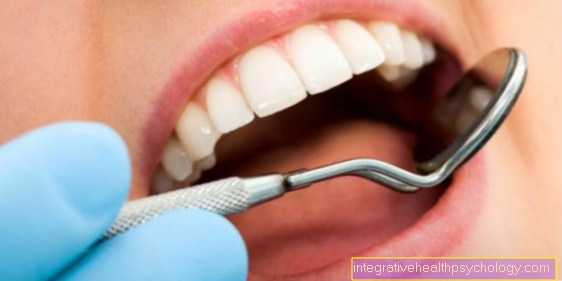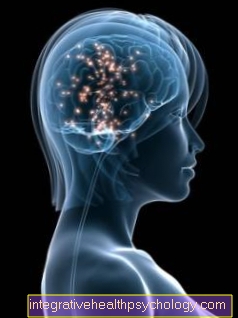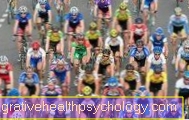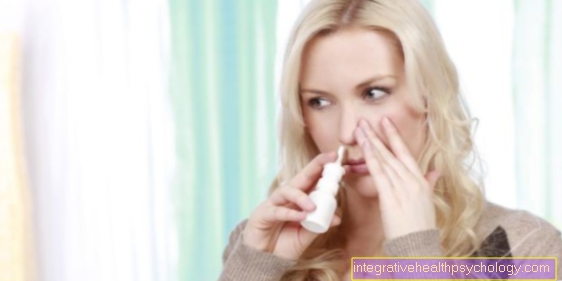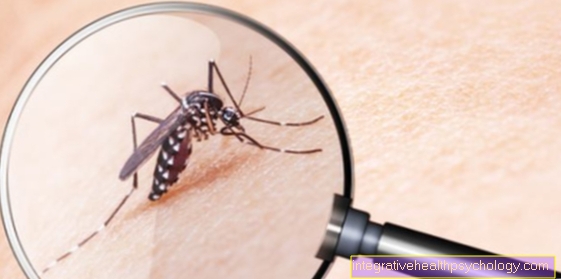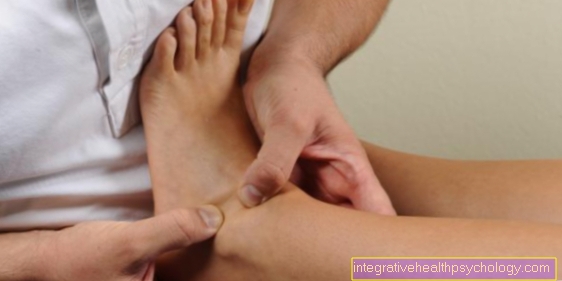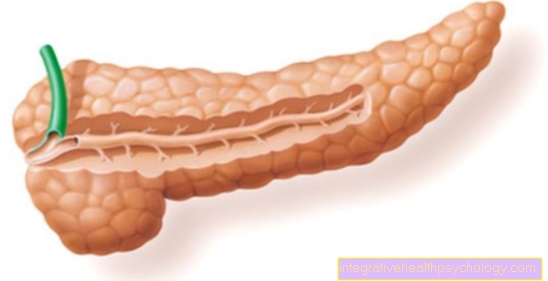Dizziness from stress
What is dizziness
Dizziness (also: vertigo) is generally understood to be a disturbance of the sense of balance. It usually arises when contradicting information is sent to the brain from the various organs of balance.
On the one hand, this can be caused by diseases of these individual organs. On the other hand, there are also forms of vertigo, which can be psychological.
These fall into the group of psychogenic vertigo and are often triggered or reinforced by strong psychological stress. This article takes a closer look at this form of vertigo.

What role does the psyche play?
Psychogenic vertigo usually has its origin in the psyche, which is why it is named after it. It often occurs for the first time in very stressful phases of life and then occurs again and again in situations that those affected find very stressful.
Often the dizziness during these events is perceived as very threatening and those affected are afraid of experiencing such an episode again. This can have such far-reaching consequences that people with psychogenic dizziness increasingly withdraw and completely avoid situations that are filled with fear of a possible vertigo attack for them.
Examples of this are important appointments, lectures, driving in an elevator or large gatherings of people. In this case one speaks of phobic (phobia = fear) dizziness. In younger people, this is the most common form of dizziness.
In addition, psychogenic dizziness is very often associated with other mental illnesses, such as depression or anxiety disorders.
Also read our topic: How can you reduce stress?
Ear pressure
If stress leads to a feeling of pressure in the ears, blood pressure is usually the cause of the discomfort.
This is dysregulated by the stress, which leads to greatly increased blood pressure in some and a narrowing of the blood vessels in others.
Both changes affect the inner ear, which is well supplied with blood, and can cause discomfort. Since not only the hearing organ but also the sense of balance is located in the ear, such an ear pressure is often associated with a feeling of dizziness.
In addition, hearing loss can set in. Often those affected also hear a high-pitched whistle. This is called tinitus. Since stress is the trigger for ear pressure, the most effective treatment is to treat stress. Massages and relaxation baths, for example, can help.
Read more on the subject at: Earache and Symptoms of Earache
Stiffening of the neck muscles
Changes in the neck muscles can also be a possible cause of dizziness. For example, if certain muscles are too short, they can no longer balance the head in a completely balanced way and this leads to a slight inclination.
This can then send contradicting situation information to the brain and thus lead to an imbalance or dizziness. Incorrect head or back postures can also lead to tension, which in turn triggers a feeling of drowsiness in the head and is often accompanied by neck and back pain.
Stress usually also promotes such tension.
Lack of sleep as the cause
Lack of sleep is a common symptom triggered by stress.
A distinction is made between two different sleep disorders:
- difficulty falling asleep, in which affected people lie awake late in the evening and
- Difficulty sleeping through the night leading to long periods of wakefulness at night.
Both symptoms can be the expression of a strong stress reaction and may lead to a significant lack of sleep. Such tiredness often causes headaches and, as a result, dizziness.
In addition, the lack of sleep leads to a reduced stress resistance, which builds up even more stress. This in turn can exacerbate the difficulty in sleeping.
A vicious circle develops.
Symptoms
Psychogenic vertigo is usually what is known as vertigo. Those affected experience an attack-like staggering and possibly turning black in front of the eyes with a corresponding tendency to fall. They have the feeling that the environment is moving back and forth even though they are standing still. Strong feelings of fear can also hide the dizziness.
In women, this type of dizziness usually occurs in their third decade, whereas in men it often occurs only in the fourth decade.
If there are additional symptoms that are reminiscent of a panic attack - such as palpitations, sweating, tremors or shortness of breath - there could also be an anxiety disorder.
Symptoms such as prolonged dizziness, sleep disorders, headaches or drowsiness can be signs of a depressive illness.
Read more on the subject at: Vertigo and depression
Drowsiness
Those affected often complain of a feeling of drowsiness.With this form of vertigo, you feel like "drunk", that is, staggered, unsteady on your feet and empty in your head. A number of other diseases can be behind this, such as nerve diseases or fluctuations in blood sugar levels.
Medicines can also trigger such symptoms as a side effect.
Feeling light-headed as a result of psychogenic dizziness can be a sign of depression and should be further investigated.
Headache and tiredness
Headache or tiredness as an additional symptom to dizziness should definitely be clarified by a doctor. In the context of psychogenic dizziness, both can be an indication of an accompanying depressive illness. This occurs particularly in connection with phobic postural vertigo.
Another cause of headaches can also be tension in the muscles in the neck, around the eyes or on the forehead. These can also occur in stressful life situations and cause long-term consequences such as dizziness or headaches. If the tension lasts longer, this can even result in relieving or poor posture and thus under certain circumstances cause chronic back problems. Targeted relaxation training and relief in everyday life should therefore be aimed for as early as possible.
Read more on the subject below: Dizziness and migraines - what is the underlying disease?
High blood pressure
Permanently high blood pressure, various heart diseases or even anemia can also lead to dizziness. Most of the time it is vertigo and vertigo. This should be further clarified by an internist.
In the presence of psychogenic dizziness or even phobic dizziness, it is possible that in the respective situation, as part of the fear reaction, the blood pressure rises and the person concerned may even feel a racing heart. Sweating or tremors are also possible.
This can be explained by the fear with which such situations, which are perceived as stressful, are occupied for those concerned. However, once the dizziness has subsided and the situation has eased, the blood pressure should return to the initial value. If he does not do this, it is advisable to have this further clarified.
Read more on the subject at: high blood pressure
Racing heart
A racing heart is a typical reaction to stress that can be traced back to natural reflexes from the Stone Age. Back then, a stressful situation, for example when meeting a wild animal, was often life-threatening. Hence, stress immediately activated what is known as the sympathetic nervous system.
This enabled Stone Age people to react quickly to escape or to fight.
- But the heart rate increased, at the same time
- the breaths deeper and faster,
- the blood pressure was increased and
- increased attention.
We still have these reflexes today, so that we react by activating the sympathetic nervous system even in stressful situations in everyday life. But this reaction is no longer appropriate in today's world.
In the case of constant stress, for example at work or in private surroundings, this can lead to a permanent increase in the heart rate and thus to a racing heart. In the long run, this leads to a deteriorated function of the heart, as a result of which, for example, the brain is only poorly supplied with blood and oxygen.
Fluctuations in blood pressure can also be triggered by irregular heart activity. This can result in stress-related dizziness attacks.
Read more on the subject at: Palpitations, dizziness from high blood pressure and the vegetative nervous system
Visual disturbances
Visual disturbances from stress are often due to fluctuating blood pressure or changing heart rates.
These result from a stress reaction that originated from our ancestors and led to a sympathetic activation.
This increases the heart rate and the blood pressure also increases. In the event of constant stress, this can lead to permanent increases in blood pressure.
Among other things, these damage the vessels of the retina in the eye and thus cause visual disturbances. Circulatory disorders in the brain, for example through a heart stumbling, which is caused by the permanently high heart rate, can cause temporary standing disorders.
Tinnitus
Tinnitus is a noise in the ear that cannot be assigned to any external sound source.
The noise does not come from the environment of the person concerned, rather it is produced as a kind of phantom noise by the brain or ear itself.
In response to stress, this is often caused by circulatory disorders, for example with increased blood pressure. This can damage the cells in the ear and thus cause the ear to transmit incorrect signals to the brain.
treatment
Already the correct diagnosis and the discussion with the patient about the illness of psychogenic vertigo have a positive effect on the course of the illness. Thereafter, therapy is usually followed, which is made up of various components.
On the one hand, physiotherapy with balance training and relaxation training are aimed at on a purely physical level in order to train the body specifically against dizziness.
On the psychological level, psychotherapy should be carried out in which the primary aim is exposure to the fearful and dizzying situation.
In addition, solution strategies should be shown to the patient in order to be able to defuse the situation better.
This should enable him to deal with such situations sustainably without feeling fear and without letting the vertigo symptoms arise in the first place.
Also read the article: Dizziness without finding, home remedies for dizziness
Homoeopathy
Homeopathy has many remedies that can be used against vertigo. Especially when stress plays a major role in the development of dizziness, homeopathic remedies can have a calming effect and thus also reduce dizziness.
If headaches and ringing in the ears occur in addition to stress, Gelsemium sempervirens can be taken. Aconitum napellus and Argentum nitricum are also effective against vertigo caused by stress.

